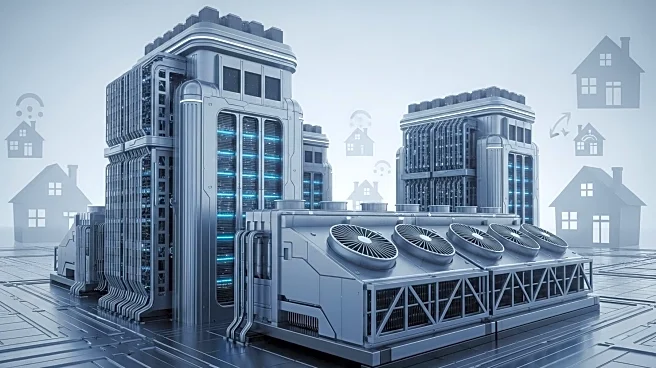What is the story about?
What's Happening?
During a recent dinner at the White House, President Donald Trump assured tech leaders of his commitment to help them secure the necessary electricity permits for data centers, which are vital for advancing artificial intelligence technologies. This move comes despite Trump's known support for the fossil fuel industry. The administration is actively working to connect these data centers to the U.S. power grid, a development that could have significant implications for homeowners. The growing demand for electricity driven by AI advancements is raising concerns about potential increases in utility costs and infrastructure expenses that may be passed on to residential ratepayers.
Why It's Important?
The promise made by President Trump to tech billionaires highlights the administration's focus on fostering technological growth, particularly in AI, which is seen as a key driver of future economic development. However, this initiative could have adverse effects on homeowners, as the increased demand for electricity might lead to higher utility prices and infrastructure costs. Additionally, the expansion of data centers could result in increased home prices, strained resources, and noise disturbances, potentially affecting property values and residents' quality of life. The displacement of residents, as observed in places like Valley View Estates mobile park in Archbald, PA, underscores the potential social impact of this growth.
What's Next?
As the administration moves forward with facilitating permits for data centers, stakeholders including homeowners, local governments, and environmental groups may react to the potential consequences. Discussions around balancing technological advancement with community impact are likely to intensify. Policymakers may need to consider regulations or incentives to mitigate the negative effects on residential areas and ensure equitable access to resources.
Beyond the Headlines
The ethical and cultural dimensions of prioritizing technological infrastructure over residential stability could become a point of debate. Long-term shifts in housing markets and community dynamics may arise as data centers proliferate, prompting discussions on sustainable development and urban planning.















